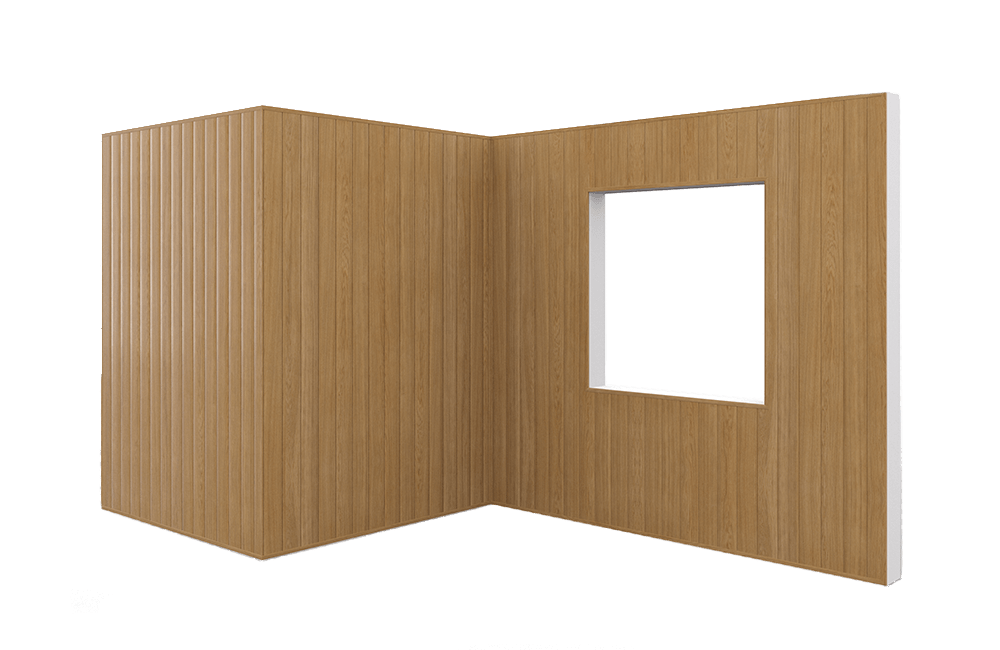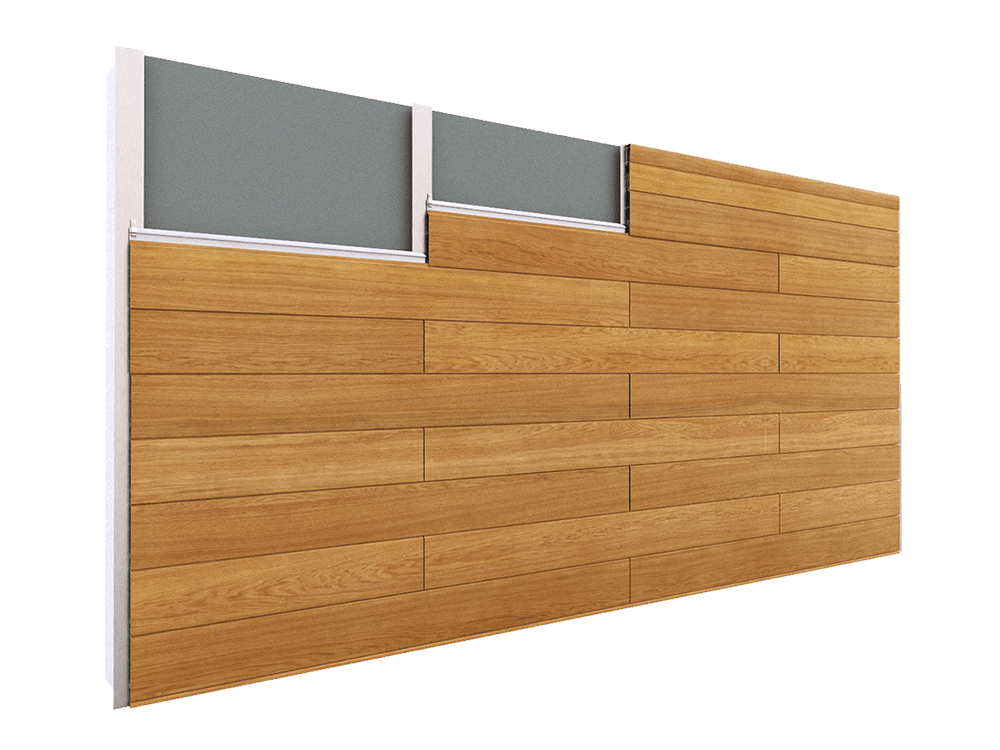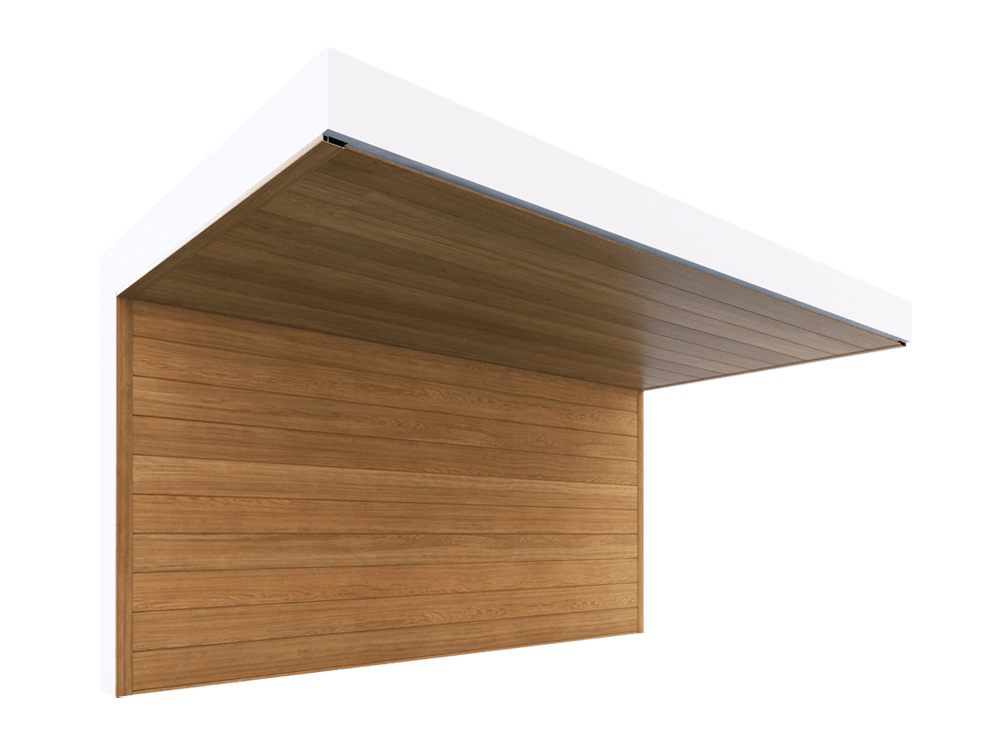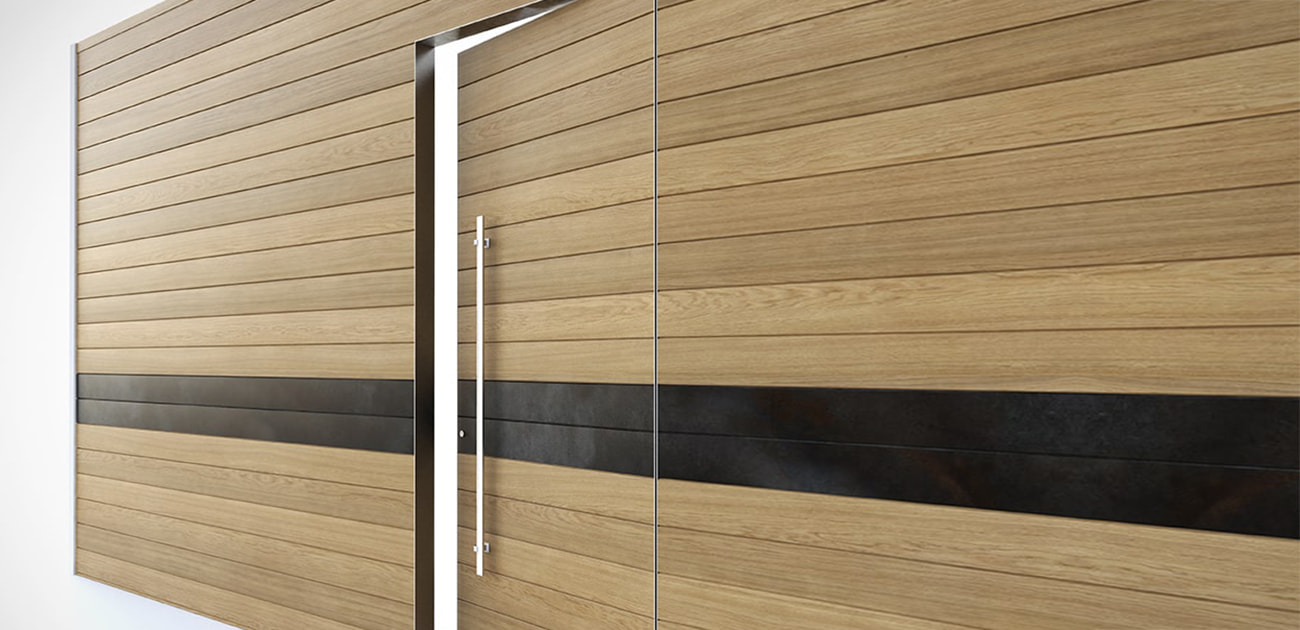Adheres like
a second skin
CLADDING adheres perfectly to exterior façades and flat interior walls because of the unique flexibility of aluminum. It creates different geometric patterns according to the chosen laying method: regular, ship’s deck or boiserie. It meets all project requirements of classic and functional design.

Regular horizontal
laying
Regular horizontal laying gives the wall a precise and orderly geometry, with joining profiles between each plank and the next, with continuous lines both horizontally and vertically, thus creating a perfect grid.
Regular vertical
laying
The regular vertical laying elongates façades and interior walls, increasing the perception of depth. It embraces and directs light, to lead the eye to create virtual ceiling elevation.


Ship’s deck
laying
The ship’s deck laying creates an irregular, almost random geometry with visible joints and without connecting profiles. Its carefully designed irregular pattern increases dynamic effect and three dimensionality of the walls. It simulates wood cladding, replicating the varying lengths and woodgrains of the wooden planks.
This method enhances façades and interior walls with an unexpected, yet project-consistent touch.
Laying
the ceiling
All laying methods can be easily applied on ceilings. Laying on the ceiling creates an effect of continuity from exterior façade or interior wall to the ceiling. It forms a high-quality protective layer.
Ideal for outdoors, but also highly scenic for indoors. To avoid space reduction, it is best to go for light-coloured DFV wood effect finishes such as oak or white renolit. For excessively high ceilings chose ebony and mahogany finishes.

Boiserie laying
The boiserie laying makes the door less visible within a wall cladding marked by unique and sophisticated features. It gives continuity and order to the decking.
In a designer’s project, our CLADDING system with boiserie laying can reproduce the classic style of vintage yet modern design.

